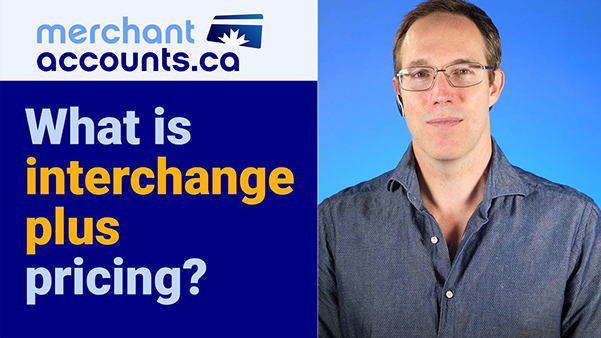June 21, 2017
by David Goodale
Merchants: Fight Back Against Rate Increases!
Has your credit card processing rate been increased? Do NOT accept it without a fight!
Key Takeaways

It is surprising how common practice it is for some credit card processors to raise rates for existing customers. Having worked in the industry for 17 years, and knowing how hard it is to win a great client, why would you want to rock the boat? Raising rates will make the merchant upset, and is something that (in my opinion) is unethical and a breach of the pricing agreement that was originally reached. Long to short is that I would never reprice a merchant... but that doesn't mean others don't.
I am certain the reason why some processors do this is because most business owners are just too busy to deal with it (or maybe they just plain don't notice). Even if it is noticed, many will feel that it's too hard to switch processors and view it as an unnecessary distraction. I think in the end many businesses accept rate increases simply because don't have the energy to fight it. I believe this to be a mistake.
You should not accept wanton rate increases from your credit card processor. You have a strong leg to stand on and you can fight it. Canadian merchants are particularly empowered to fight back against unwarranted rate increases due to the credit card industry code of conduct in Canada.
In this discussion we'll explore what you can do if your processing rates are increased. I'll explain why the notice of the increase and how it's delivered matters, how to confront your processor to try to prevent the rate increase from going into effect, and also some legitimate reasons why rate increases sometimes have to be passed along to merchants.
Legitimate reasons for rate increases.
It's unfortunate that some payment processors have worked rate increases into their business model. (One of the tactics used by some processors is to sign merchants at a low rate, and then increase it later on). However, before we rally the village with torches and pitchforks, I should point out that there are a few legitimate reasons for why a rate increase can happen. Let's start by examining legitimate reasons so you can be more confident in arguing why a rate increase should not be given to your business.
Legitimate reason #1: change in business type / product risk
Certain types of products are higher risk to sell than others. If an online wedding cake business decided to diversify on over to the armour piercing bullet business... this might have a slightly higher risk profile! Silly examples aside, we can say that different products have different risks associated with it. Even though you may not realize it, some services that you might think are low risk are not. For example if you had a company that did web design, but moved into the web hosting business it could have an increased risk profile associated with it. However, I want to point out: that doesn't mean pricing should be revisited. Repricing because of product risk would be a rare thing. If product risk changes the greater likelihood is that the processor will put a larger security reserve on the account, which is a more sensible thing to do given the situation. I suppose that my takeaway point is that for SIGNIFICANT changes in the type of product or services you sell, it could POSSIBLY be a reason to revisit pricing. If so, the processor should be able to explain the reasoning to you very clearly.
Legitimate reason #2: Your business financials are in poor shape.
Like the reason above, this has to do with risk. If your business is in poor financial condition it may at some point not be able to fulfill the orders it's taking. If this happens it would cause a problem for the credit card processor. It's beyond the scope of this article to get into the specifics of chargeback risk, but the short summary is that credit card processors are liable for disputes between merchants and customers. If the processor is potentially liable for a merchant that seems like it could go out of business, it might not be a good business decision to continue processing for this merchant. This could potentially lead to a pricing issue, cancellation of the account, or most likely of all: a risk and collateralization issue. Once again I suggest talking to your processor about why your rates have been increased. The honest answer, if given candidly could be along the lines of: "When we boarded your business we had an appetite for the type of services your company sells. However, your company financials are a concern, and while we appreciate your business there is an inherent risk to us to continue to process payments for your business. For that reason we've decided to revisit pricing." It may not be what you want to hear, but at least it is based on something tangible and real. To be very clear, in terms of legitimate reasons #1 and #2 - both are somewhat disputable in the sense that repricing the account makes less sense than asking the merchant to put up a security deposit or a rolling reserve. Basically, these are reasons why a processor could open the topic of discussion for pricing, but in reality they are somewhat dubious reasons for repricing an account. The next reason that we will explore is by far the most valid and honest reason why a processor may need to raise rates for an existing merchant.
Legitimate reason #3: Costs have increased for the payment processor
Unlike the first two reasons, this one is clear and easy to understand. If Visa or MasterCard amend interchange so that the transaction cost to the payment processor goes up, it is reasonable for the processor to assess how the increased costs will impact the account. For clarity on this point it's important to know that interchange costs are not changed very often (once or twice per year in usual circumstances), and the trend in most regions has been for interchange costs to be reduced, if anything. This means that it's fairly unlikely to happen. I'll provide two examples below to help you better understand when revisiting pricing would become necessary.
Example 1
In the first example we'll pretend a merchant has a flat rate of 2.5%. The processor is making a reasonable profit margin on the account. In this example we'll assume that a very small interchange increase occurs. Transaction costs for the payment processor go up slightly. In this case the processor might not have to revisit pricing at all. A good processor would just eat the loss and absorb the cost increase on behalf of the merchant without passing a cost increase through. This would be a good faith effort by the processor (and unfortunately for the processor most merchants almost certainly wouldn't even know about it). The reality is that many payment processors tend not to be so "nice" as to absorb cost increases out of kindness, but there is no business reason that they can't, and some processors (ahem... MerchantAccounts.ca!) do indeed have a policy of not ever disturbing merchant pricing unless absolutely necessary.
Example 2
In our second example we'll pretend it's a big merchant and they also have a flat rate, but in this case it's a flat rate of 2.1%. In this example we'll say that interchange was significantly increased and the processor would take a loss if they did not pass the cost increase through to the merchant. If this happened the processor would have little choice but to pass the cost increase through. If they continued processing without passing the cost increase through it could mean losing money on the account, thus pricing needs to be revisited.
As you are probably starting to see, the context and reasoning behind any rate increase is very important. If you have a good processor they will be proactive, open, and tell you exactly why your costs are being revisited. They should hopefully be transparent (exactly and honestly) about how much their own costs went up. Most business owners would be understanding in this situation. The problem is that some rate increases to merchants are not at all driven by a change in costs, but by simple greed on behalf of the processor. That's why it's important to ask, and be confident when doing so, about why your processing rate is increasing.
Related Note: This is one of the reasons why I so strongly recommend interchange plus pricing to merchants.If you are on interchange plus pricing it means that any cost increases will be passed to you exactly and truly, without additional markup by the processor. More importantly though, any cost decreases will ALSO also be passed to you automatically. Do not assume that most processors are so kind to reduce your rate if their costs go down. By tying your account to interchange and using interchange plus pricing, you'll automatically have the cost savings applied to your account.
Legitimate reason #4: Change in risk for your entire industry / sector.
This example is unique in that it doesn't have to do with your account, but your industry. In some cases there are significant events that occur and can affect an entire sector of merchants. Years ago web hosting was a very low risk business. At some point, unix shell accounts became popular. These were a type of account that could be used by hackers or nefarious web users. What ended up happening is that chargebacks and fraud piled up for web hosting businesses. The entire industry had changed, and processors had to react. Another example could be where a processor takes a major, major loss from a significant merchant in a particular industry, and it makes them realize that they are not profitable enough for the risk exposure they are taking on for that type of merchant. This is a bit of a technical business analysis but you only need to be aware of the concept. I was working on a cruise line account a few years ago, at a time when there was a lot of bad press about cruise ship accidents and problems. At that point in time, it was not easy to get a low rate (or even approval) if you operated a cruise line. This is especially frustrating because sometimes knee-jerk reactions can be caused by factors completely outside of your control. If this happens, it might be a legitimate reason for the processor to address it, but it doesn't mean that you should accept it without a fight. It ultimately takes me back to reiterate once again that you must always ask the reason why your rate is being increased. See how open, honest and candid of an answer that you get. Evaluate what you are told, and you can decide what to do from there.
Legitimate reason #5: You are getting a lot of fraud or chargebacks
If your account is performing poorly, if your account takes a ton of time to administer, or if you are otherwise causing problems for the processor, it could potentially be a reason to revisit pricing. The reality is that if your account receiving so many chargebacks that it's being repriced, it would actually be more likely for your account to be closed instead. However, for the sake of being thorough I'm including this in my list of "legitimate reasons". Your credit card processor does have to make a profit on your account, so the risk of fines from excessive chargebacks, combined with the time it takes to administer an account is worked into the equation somewhere. I've never actually heard of a merchant being repriced because of chargeback performance, but in theory at least, it could be a reason.
I understand the reasons listed above, but my rate increase is totally unfair!
It is quite possible your rate increase is not based on any other "reason" than the processor simply wants to earn more money from your account. Now that you have some understanding of legitimate and fair reasons why pricing is revisited sometimes, let's learn how to address it when it is not warranted or reasonable.
Start by analyzing the notice. How were you notified of the rate increase?
How you are notified, and how the rate increase is approached plays a huge role in how likely it is to be a fair and reasonable increase. There is a world of difference between an account rep calling you and explaining the situation and talking about changes to interchange, when compared to a sentence tagged onto the back page of your processing statement!
How were you were notified of your rate increase? Was there a detailed explanation, and did it make sense? How much notice was there? Was it an open and candid discussion?
Seeing a few sentences on your latest processing statement about a rate increase is the hallmark of a processor that is not treating you right. Beyond the poor customer service, there is also a notice issue. You also have the right to be notified WELL BEFORE any rate increase goes into effect. By the rules of the code of conduct you should be notified at least 90 days before the change goes into effect. Outside of Canada there may be different rules in your region, however, a notice of less than 90 days would seem unreasonable because you should be given fair and reasonable notice before any change goes into effect.
Getting ready to fight back!
If you think it's an unwarranted rate increase, then it's time to fight back. If you have an account manager or representative that you work with at your processor it is time to give them a call. If you don't, perhaps the best call is to the salesperson who originally helped you to open your account. Dialling into a callcenter might be painful and unproductive, so be ready to contact the most senior contact that you have at your payment processor.
Before the call
Before reaching out to your processor to discuss the increase in your credit card processing rate, you need to do some research. You should know these things about your processing activity prior to making the call:
- Has your processing volume changed significantly? (Gone up, gone down, stayed the same?)
- Has your chargeback activity stayed consistent?
- Has your number of refunds stayed consistent?
- Has the financial position of your company changed significantly?
The reason why it's best to know these things before calling is because if you can state that your volumes are consistent or growing, if business is going well, if you have maintained low chargebacks and your account is in good standing – then what reason do they have for increasing your rate!? Be armed with this information before you call.
You should be prepared to ask the following questions when you call
- Are you aware of the rate increase to my account?
- What is the reason for the rate increase to my account?
- Were other merchants rates also affected?
- Ask if interchange has adjusted. If so, which card types were affected and by how much? (Make sure they reference the interchange table specifically)
- Is this a result of the performance of my business? If so, what drove this change?
- Is it standard practice to increase rates? Should I expect this again?
- If you are getting a very bad vibe, you might want to ask (or you might not depending on your desired outcome) - do you have any long term clients that you can provide as references whose rates have not been increased?
Have a silver tongue? Let's renegotiate this whole "rate increase" thing!
You know your number of chargebacks, your refunds, trading volumes and financial position prior to the call. It's time to start twisting arms with that information. This is just a very rough draft, but it could go something like this:
I was surprised to get a notice about a rate increase for my account so I took a bit if time to review my account before calling.
Have you noticed that our chargebacks, which have always been low, are even lower over the last 12 month period?
Have you noticed that our trading volume has increased steadily each year? Not explosively, but strong, organic growth as our business grows?
Our financial position is excellent as well right now.
I think, with low chargebacks, strong financials and steadily increasing volumes we'd make a pretty good client?
If I'm correct, and you don't dislike our business, why are you treating me like someone that you don't want to work with anymore?
I've been a good and loyal client, and if you want to keep my business I believe a rate REDUCTION is in order. I know that with our mature business and trading volumes you are not the only processor that would want our business...
... and that is how you turn a rate increase into a rate reduction! (Or you can try at least... obviously no guarantees here). Regardless of whether the script above works, the points are absolutely, 100% perfectly valid. If you are a good, long term, profitable, stable client, then why are they treating you poorly? They shouldn't be!
What to do next
You did the call have gotten a reason or explanation as to why they felt a rate increase was in order. Hopefully after that conversation they backed off and cancelled the rate increase, but perhaps it didn't go as smoothly as we had hoped. Regardless of the outcome you still have to now digest the information you've been given, evaluate the situation, and decide your course of action.
The options are somewhat limited. You can:
- Did they retract the rate increase? If not, you could call another contact at your payment processor and take another shot at changing their mind.
- Cancel and find a new credit card processor.
- Accept the outcome and move on with life.
Do you want to cancel and find a new credit card processor that will treat you better?
This is a good time to ask yourself why you'd want to keep working with a processor that has jacked up your rates for no good reason. (Is this a good time to insert a shameless plug to work with me? At Merchant-Accounts.ca we value our clients and don't do rate increases.). The reality is that it's important to remember that this is a long term partner for your business. If it's happened once, it's likely going to happen again. Plus, just from an ethical standpoint it probably feels very wrong. That was not what was agreed to originally, and it's not right to just change your rates.
If you are Canadian you happen to be in a particular good situation. In Canada you can exit your contract penalty free any time there is a rate increase. That makes it easy to escape from processors who aren't treating you right. Outside of Canada, you might have a fight on your hands.
Canadians – the credit card industry code of conduct PROTECTS you from cost increases!
All Canadian payment processors must abide by the code of conduct. It is a very good thing for Canadian business owners. The code of conduct addresses rates increases and protects merchants from some other unfair business practices that have occurred in the credit card processing industry. The rule under the code of conduct is refreshingly simple: you are guaranteed 90 days notice before a price increase can go into effect. Furthermore, from the date the notice is received you can cancel your processing agreement penalty free. This means that you can find a better payment processor the moment you are notified of a rate increase. Your current processor can't try to trap you or force you to accept the new rates. Just remember that you only have 90 days from the date of the notice.
Thanks to the code of conduct, if your processor has just thrown a price increase at you it's a great time to thank them for showing their true colours, tear up your agreement and find a processor that values your business. At Merchant-Accounts.ca we are proponents of the code of conduct because it penalizes bad processors and works to our benefit of processors that treat customers right!
You might be in trouble if you are stuck on a contract that you can't get out of...
If your business is not based in Canada you won't have the protection that the code of conduct provides. The issue is that processing agreements are notoriously bank sided and you might have a fight on your hands getting out of it, even if you've just been slapped with a big rate increase!
If this happens, the first thing you should do is read your contract. Look for the term and termination clauses. Also review for any language related to rates and pricing. Most merchants will not want to get into a legal dispute with a big credit card processor so what you are looking for is a clear understanding of the term, the reasons you can cancel, and any rights the processor has to re-price your account.
I am certainly not suggesting a legal fight, nor am I suggesting that you take it lying down. It's a difficult situation. All that I am suggesting is that you need to read your processing agreement to understand what your options are. (Side note, hopefully you read your processing agreement before you signed it and are not locked in with an unreasonable cancellation fee). If it's a halfway fair agreement there should hopefully be a clause in there about cancellation due to rate increases, or failing that a small early termination penalty (or hopefully no early cancelation penalty at all).
If the agreement is one sided in the processors favor you could be in for a fight. In which case my best advice, which quite possibly isn't that helpful, is to try very hard once again to renegotiate the rate increase with the processor. If the processor has you between a rock and a hard place, REMEMBER this when it you've satisfied the term and it comes up to renew .
Another consideration is that even if there is a cancellation penalty (even if it's a fairly big one of $500 or more) you could still come out ahead with a switch. If your new payment processor can give you a rate that is low enough to recoup the cancellation cost over time, then you can still walk away a winner. If you choose to stay with the current processor, once you've satisfied your contract term you should not reward them with more business.
Summary
I hope my readers don't get upset for saying this, but this is a situation where an ounce of prevention is better than a pound of cure. It is so much easier to choose a good processor with a good reputation than fight your way out of a bad contract. If you are reading this it's likely that you are in a difficult situation, but the good news is that you are now armed with both knowledge of protections within the industry, and also very good negotiating points to try to tackle the problem.
If you operate a Canadian business take advantage of the protections that the credit card industry code of conduct provides. If you are going the route of renegotiating your rate increase, also ask yourself whether you really want to stay with that processor? Most good processors will not reprice merchants without a VERY good reason. So be direct, do your research prior to speaking to your processor, and confidently confront them about why your account is being repriced.
Hopefully after reading this article you feel better prepared to address to the issue, and can get the best possible outcome.
View Rates
If you haven't reviewed your processing costs in a while take a moment to view our rates.
View Rates











 My name is
My name is